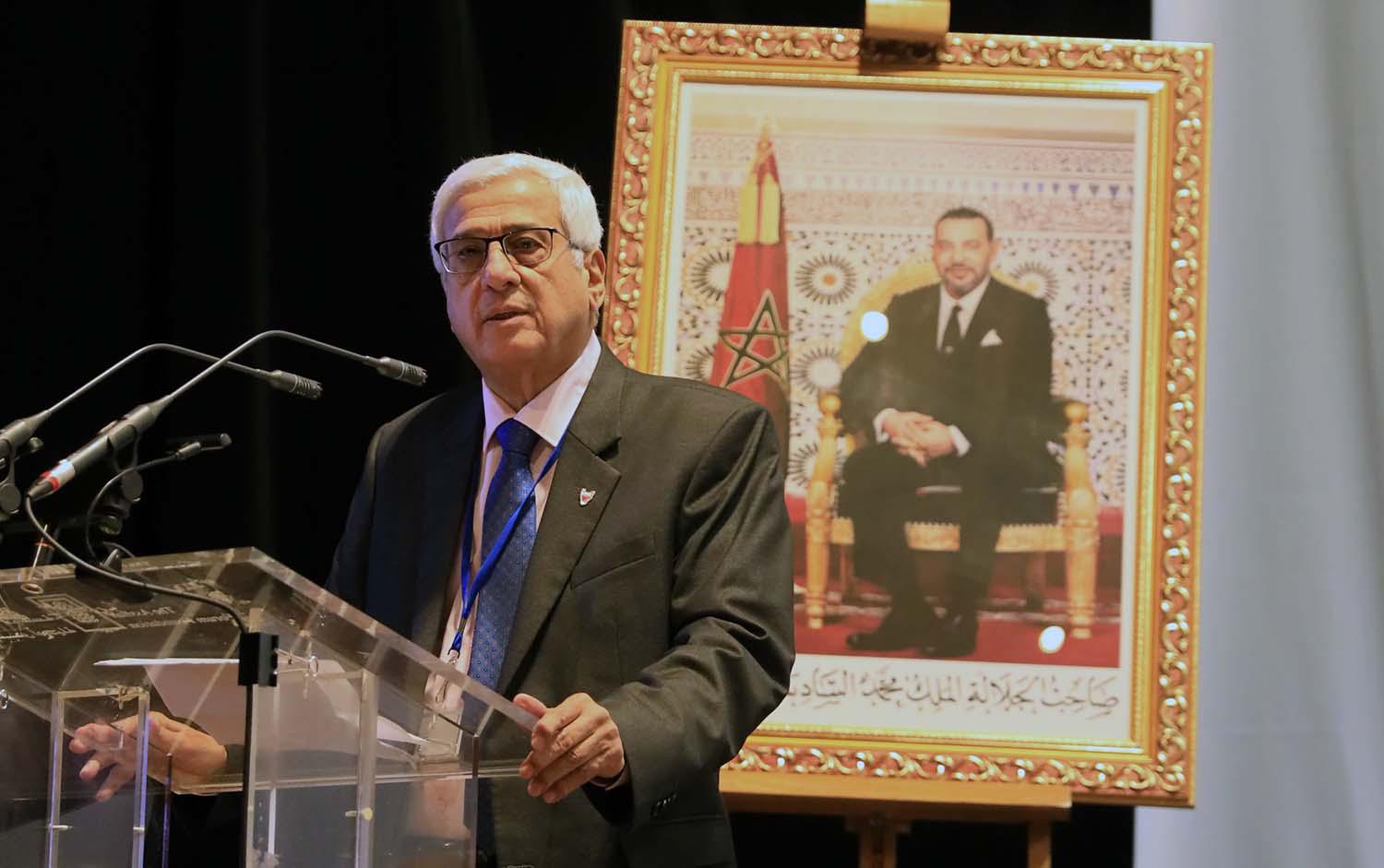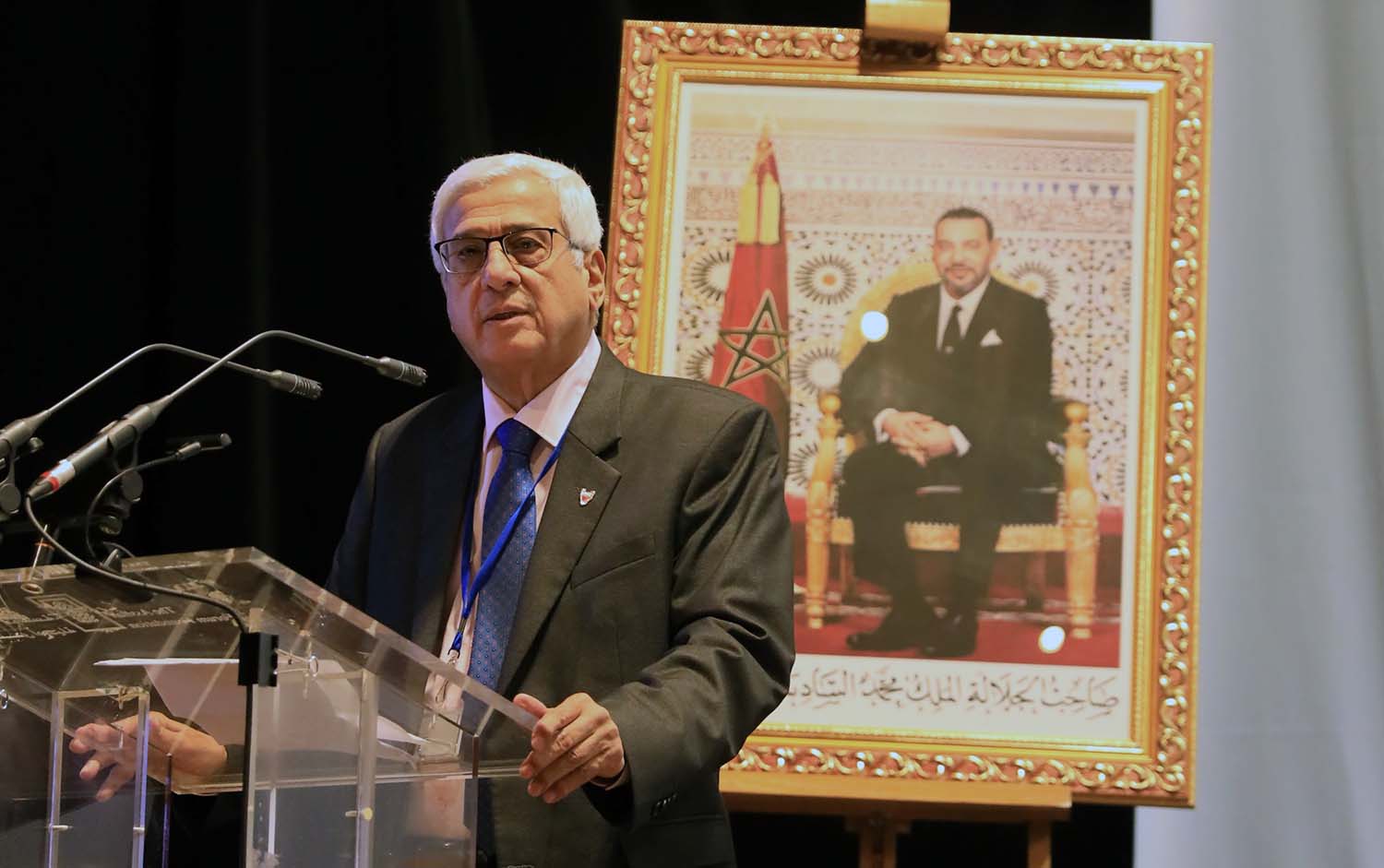
Experts draw bleak picture of Pan-Arabism’s status
ASSILAH - It is inevitable that the regional and international transformations that are being experienced in the Arab world have repercussions until this moment have negatively affected the idea of Arabism and the resulting political arrangements and structures, said Monday Mohamed Benaissa, Secretary General of the Assilah Forum Foundation.
“The new Arab situation has encouraged non-Arab international and regional powers to interfere and influence the decision-making process within the turbulent Arab arena,” said Benaissa at the opening a seminar titled “Arabs faced with the new regional and international alliances: What becomes of Pan-Arabism?”.
“All of this fuelled, in one way or another, the eruption of ethnic and sectarian conflicts, including in countries that were the cradle of the emergence of the idea of Pan-Arabism and Arab nationalism,” he added.
Nabeel Al-Hamer, advisor for Information Affairs to the King of Bahrain, said that the Arab world has a long rich history of crystallization and national dream, low and high tides, revolutions and starts, rise and fall of nations and entities, invasions between brothers and the aspiration for one homeland that brings together the sons of Pan-Arabism from the Atlantic to the Gulf region regardless of morals and methods.
“The transformations in the world today are no longer military or political… today these transformations have taken an economic, social and media course in the first degree,” he said.
The COVID-19 pandemic in the last two years has put Arabs in front of big economic challenges, which “pushes us to deeply think about our current state.”
Hamer pointed out that the Arab arena was today witnessing internal wars, fratricidal fighting, regional absurdity, and repeated daily attacks on Arab countries.
“We must not lose hope in the nation despite the bleak picture. This nation will not die… I see there are seeds of positive Arab transformations. The Arab man has become more aware of conspiracies around him and more attached to his Arabism,” he said.
Hamer stressed that the Arab world could be a mighty force that would be able to confront outside forces and be reckoned with in all the contexts and strategies adopted by others.
He concluded that the Arab world would remain steadfast in the face of all challenges and transformations thanks to its rich history and human civilisation besides its people’s faith in Pan-Arabism.
Hussain Shaaban, Vice President of the Academic University for Non-violence and Human Rights, said that Pan-Arabism is different from the idea of nationalism because it is an identity while nationalism is a political act.
“There are dangers to which Pan-Arabism is exposed, most notably the collapse of the Arab state, the many non-Arab regional interventions in the region such as Iran and Turkey, and the decline of the Palestinian cause,” warned Shaaban.
He explained the difference between cultural Pan-Arabism, which is inclusive, open, human and broad, and the nationalist Pan-Arabism which is divisive, exploitative and intolerant. “Arabism today cannot be reduced to nationalism or race.”
He noted that there was a velocity today between Pan-Arabism and modernity.
“When I say modernity, I mean civil, secular, rational, and democratic. Arabism is not a static or final issue. It is transformative, optimistic, and constantly renewed. Some of its elements change, such as customs and traditions,” he said.
“The difference of identities is real and not fabricated, because there is a right to identity in groups and people, as there is a strong relationship today between Pan-Arabism and citizenship. Pan-Arabism is the language of Al-Mutanabbi, Taha Hussein and Gibran Khalil Gibran,” he added.
Shaaban called for discovering Pan-Arabism, defining it and fortifying it with freedom, acceptance of the other, and the understanding of the difference.

Moustapha Naaman, Former Yemeni Ambassador to Spain, said that the political meaning of Pan-Arabism has been devoid of its content and substance.
“I see the idea of Pan-Arabism is a sound one but it cannot be applied in the real life because the subjective has prevailed over the objective in the Arab World,” said Naaman.
He took aim at the Arab League which he said has never managed to solve a political problem and which failed to fulfill the mission which it was founded for, slamming the Pan-Arab organisation for failing to unify the Arab world.
He asked whether Pan-Arabism was to speak the same language or “is it just a slogan that we boast about?”
Mauritanian political analyst Abdallah Ould Bah said that Pan-Arabism was facing great challenges in the midst of democratic changes in the Arab world and called for the integration of the Horn of Africa region into the Pan-Arabism process due to its strategic importance on the geopolitical map.
Mohamed Tajeddine El-Houssaini, professor of international relations at the Mohammed V University Rabat, said that the Arab world has got all what it takes in terms of social and cultural homogeneity, because it speaks the same language and more than 90% of the population embraces Islam besides the cultural and ethnic interconnection.
“We cannot talk about a balanced regional system unless there is an economic integration,” saod Houssaini.
He highlighted the failed attempt of the Nasseri movement in the late 1950s which led to the union with Syria and the start of the domination of other Arab states to dismantle the Arab system that kickstarted from the base.
He mentioned the Grand Maghreb project whose good intentions rapidly faded away as the dream of setting up a united customs union in the Maghreb Arab region did not materialise because of the geopolitical factors that hindered its achievement.
“The Arab world is living its worst crisis since it’s the creation of its countries after their independence,” said Tajeddine.
“Almost half of Arab countries are either failed states because the central state no longer has influence or rogue states,” said Tajeddine.
He cited the example of Lebanon where some currents are trying to plunge it into the abyss in a bid to make it a failed state besides the attempts to revive the political course in Libya which has been struggling to stand on its feet since the ouster of Moamer Gathafi.






